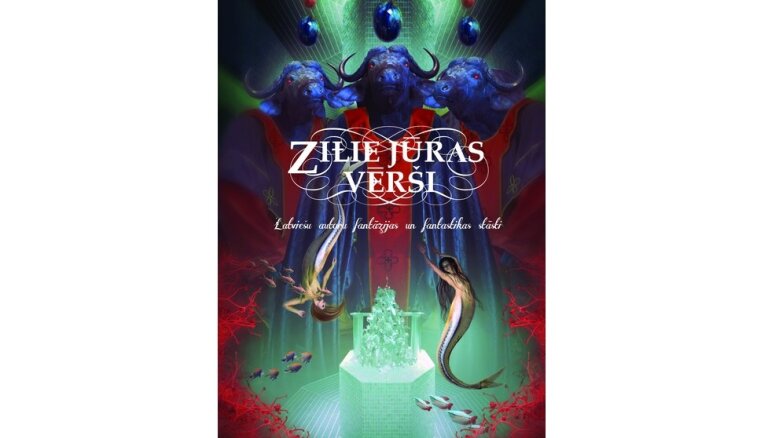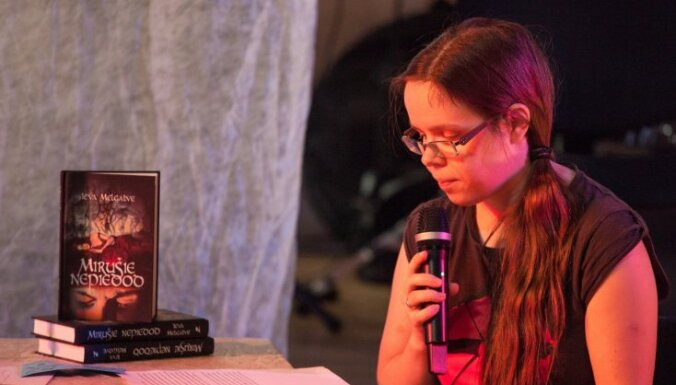

Perhaps they could continue to play their parts if the planned performances weren’t shaken by a resistance movement trying to realise the Actor’s identity behind the scenes and possibly even do away with the theatre’s power altogether. However, as the Mime gradually awakens to a consciousness that becomes his own, he can no longer react to what is happening in the theatre without emotion.

Similarly, the Mime – one of the androids equipped with artificial intelligence who maintains order in the theatre world – tries to play the role of guardian for the actors. One of the book’s central roles – an Actor who doesn’t have his own name – desperately tries to take part in the scenarios presented to him, but each time he tries to play his role honestly, it becomes more and more bizarre, tearing down the border between performance and truth.

Who are these playwrights, who is the audience, and do they really exist? No one knows (although a few of them – the inquisitive young Lapsa, for example – tries to find out). The actors don’t have their own identity outside of their stage lives, and no other objective than just to get the chance for a better part and try to not get on the playrights’ blacklists. In an enormous theatre on many stages there are theatre performances all happening at the same time. Ieva Melgalve is actively involved in Latvian literary circles, literary criticism, and running workshops at the Literary Academy, courses organized by the Latvian Writers' Union. Two of her novels, The Dead won't Forgive and A rrow, Star and Laee, have been nominated for the Annual Latvian Literature Award, and so has her work Moon Theatre/ Mēness teātris (2015). gadu simteņa (1999), and written plays for theatre, her science fiction play in two acts Inhumanity/ Necilvēki being published as an e-book. Melgalve has also published poems, for instance, in the anthology 21 from the 21 st Century/ 21 no 21. This piece was awarded in a young authors competition run by the Ministry of Education of Latvia, and the same year, her mini-novel I was Waiting for Spring to Come, or Ice-heart/ Kā es gaidīju pavasari jeb Ledussirds (1996) was awarded the magazine Karogs prize. She gained greater public recognition with her unintentionally scandalous work of prose titled Definitions/ Definīcijas, published in 1996, because of its honest and uncensored vocabulary and wide popularity among young readers. She started out and got involved in the Latvian literary scene at a rather young age – when she was only 12, participated in the literary youth camp Aicinājums (The Calling) several times. Ieva Melgalve (1981) is a popular Latvian writer of fantasy novels, SF, plays, and other prose genres.


 0 kommentar(er)
0 kommentar(er)
